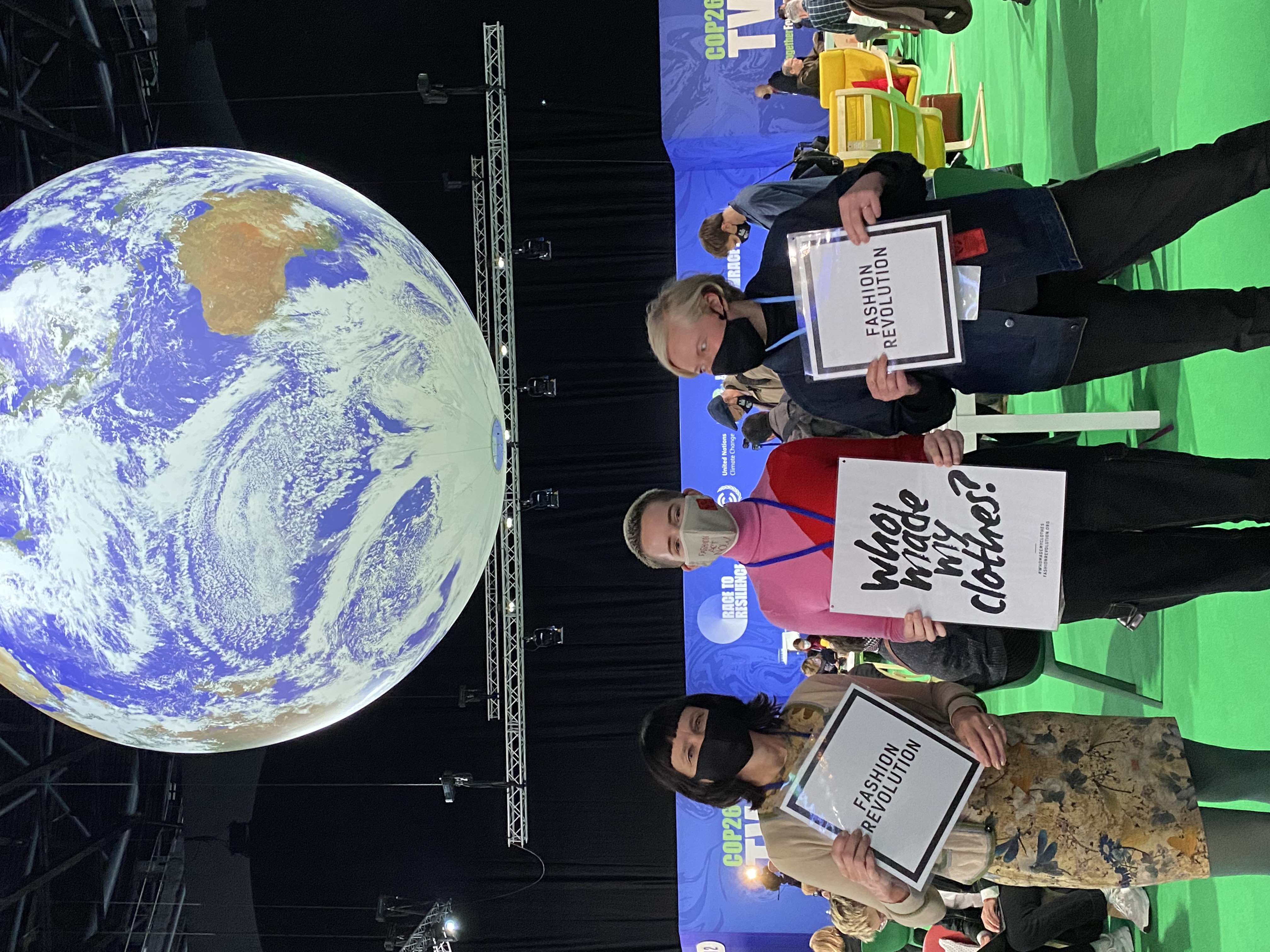COP26: Why fashion needs a seat at the table
COP26 has officially kicked off, bringing world leaders together to commit to urgent climate action. The fashion industry is responsible for a vast proportion of global greenhouse gas emissions, so we need policymakers to ensure fashion is held accountable. In fact, our planet depends on it.
The first step is greater transparency, because we can’t monitor what we can’t measure. To get there, we need legislation that requires companies to monitor and report on their impacts and holds them accountable for environmental and human rights abuses throughout the supply chain. As a global movement for systemic change in the fashion industry, we want policymakers to listen to the science, not the money, and recognise the potential for fashion to be a part of climate solutions.
At present, the majority of major fashion brands are failing to disclose vital environmental data, without which we are unable to access a full picture of the impact of their products and operations. For example, our 2021 Fashion Transparency Index found that only 30% of brands publish time-bound, measurable commitment to decarbonisation, and just 25% publish targets for reducing the use of textiles derived from virgin fossil fuels. Clearly, voluntary sustainability initiatives are simply not enough to meet the challenges of the climate crisis.

For forward-thinking brands, policymakers and global citizens who want to make a difference to fashion’s climate impact during COP26 and beyond, we want to see collective action across policy, industry and culture.
POLICY
- Create legislation to hold brands accountable for their impacts.
For example, EU policies on supply chain due diligence and sustainable materials. - Existing legislation must be upheld and enforced.
Legislation must have enforcement mechanisms and penalties for inaction - Listen to the science, not to the money.
Policymakers must urgently take the fashion industry into account for climate policy
INDUSTRY
- Invest in increased transparency and accountability.
We want to see brands’ Fashion Transparency Index scores increase significantly - Track and reduce their impacts across the world
Brands need to urgently take steps to reduce their carbon, waste, water, energy and chemical impacts - Support legislation that keeps the industry accountable
Stop greenwashing and start supporting transformative system change
CULTURE
- Hold brands and policymakers accountable
Use our tools to ask #WhatsInMyClothes - Shift your fashion habits and dress for the climate crisis
Remember that the most sustainable garment is the one already in your wardrobe #LovedClothesLast - Support the movement for change
Join our Fashion Open Studio activations and donate to support our global community.
This is the decade in which we must limit climate change and advance social justice, and COP26 is the perfect opportunity to take a stand. We believe that the fashion industry needs far-reaching systemic change in order to tackle the poverty, inequality and environmental degradation that all too often lies hidden within its value chain.
Find out more
Fashion unites on a call to action for COP26
COP26, meet Fashion Revolution: Fashion Open Studio x British Council
Meet the sustainable fashion activists fighting for climate justice at COP26
Taking action on fashion and the climate crisis
Garment workers and climate change: The socioeconomic link








